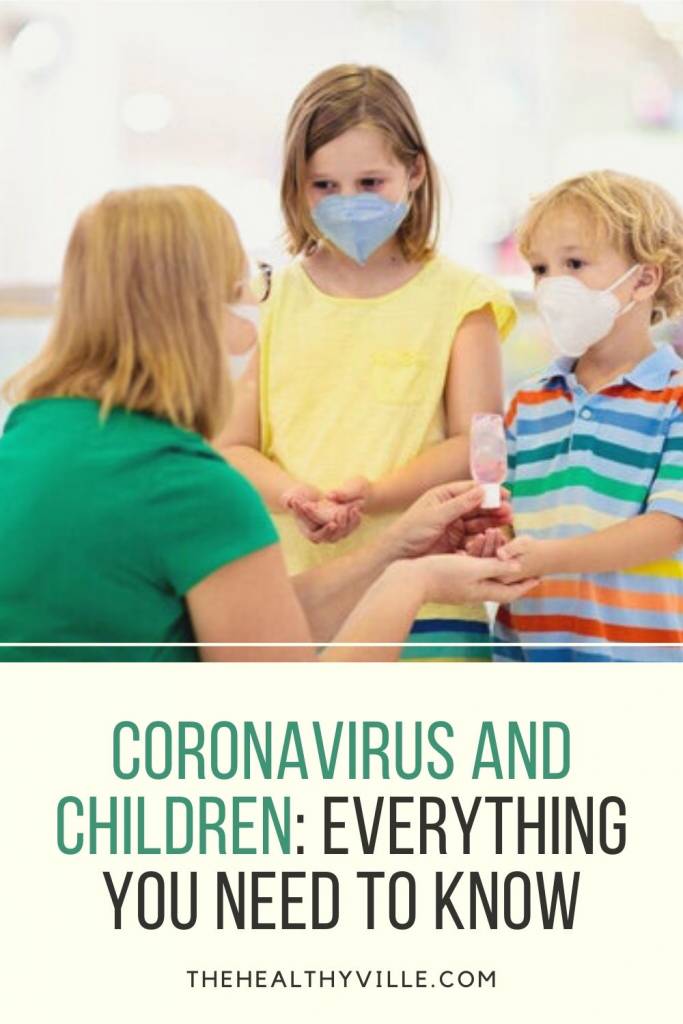The coronavirus and children connection is really unusual. The virus seems to not affect the little ones, thank God, but we were not clear why. Learn now.
The coronavirus in children can be an infection that is asymptomatic. Therefore, they must also comply with preventive isolation. On the other hand, in cases where symptoms do appear, you must pay attention and put into practice certain precautionary measures.
The SARS-CoV-2 coronavirus is the virus that has unleashed the pandemic that is rocking the world. As it is a new type of this virus, scientists are still investigating all its effects and characteristics. However, there is something that is evident: the coronavirus in children is different.
Since the first cases began, in the Chinese city of Wuhan in late 2019, it has been observed that the majority of cases occur in adults. In fact, despite the fact that mortality rates in the elderly are very high, the coronavirus in children does not usually cause death.
On the contrary, the infection in childhood, in most cases is asymptomatic. This fact is still being the result of study, but in this article we explain everything that we currently know about the coronavirus in children and how it can affect them.
What is coronavirus and what symptoms does it produce?
Coronaviruses are a family of viruses that comprise different subtypes. In late 2019, the first cases of a new type of coronavirus were detected. The origins of this virus are still unknown, but it is suspected that it mutated from an animal host.
It is a very contagious infection. The problem is that this virus can produce different clinical pictures, from a simple cold to pneumonia or respiratory failure. In fact, it affects people differently depending on their age or the state of their immune system.
Read more: Coronavirus Symptoms, Flu or Allergies? – How to Differentiate Them?
The coronavirus is causing a significant number of deaths in older people. However, although much less frequently, it affects young people, as well.
The main symptoms of this infection are fever, cough, and shortness of breath. However, just as there may be complications, there are also many people who pass the infection asymptomatically.
Coronavirus and children
As we have already mentioned, the coronavirus in children acts differently. Not in the sense of the infection mechanism, but regarding the symptoms. In general, the symptoms are much milder and mortality is really low.
In addition, a number of other differences have been identified. A study published in the journal Pediatrics explains that the percentage of children who evolve seriously is very small. In fact, as they get older, the risk of complications increases.
The coronavirus in children represents a risk for those who have a weak immune system or respiratory problems. Estimations are that almost 40% of children who catch the infection have an infection with another virus or bacteria at the same time.
This data makes the study of the coronavirus in children more complex. Regarding symptoms, the same statistics suggest that around 60% of children with the infection experience fever and cough.
Coronavirus in children poses a higher risk of transmission
Although, as we have pointed out, the coronavirus in children does not seem to pose too much risk, it does pose a problem at the transmission level. Children are an important source of contagion for any pathology.
Adults are increasingly aware of the hygiene conditions that we must follow. However, children do not, and most do not know how to pay attention to hand washing. In fact, they are in constant contact with your nose and mouth.
Therefore, as parents or caregivers, we must pay special attention to children. Both its symptoms, in order to prevent any complication or problem, and its hygiene. We must be aware of the complexity of this situation.
In addition, the ideal is to avoid contact between children and the elderly. The coronavirus in children can be asymptomatic, but this does not mean that it cannot be spread. Therefore, the most recommended is to maintain all possible precaution.
Don’t forget to SHARE the coronavirus and children connection with your friends and family on your social networks!

